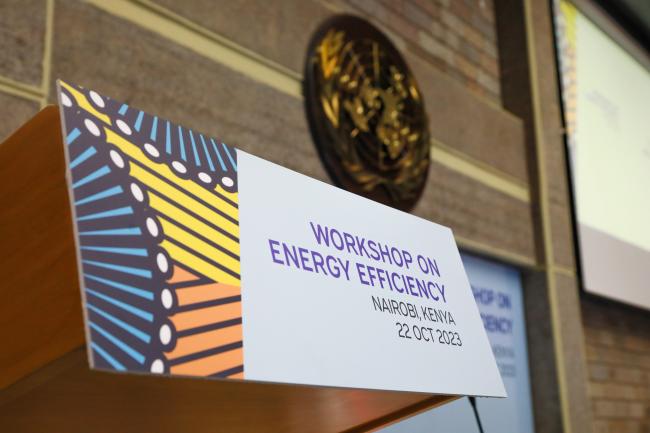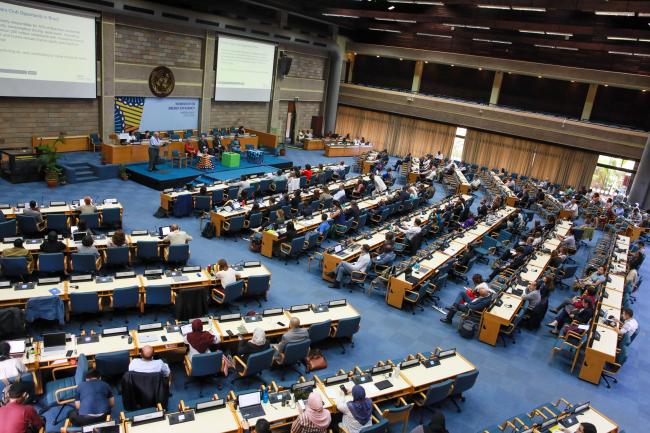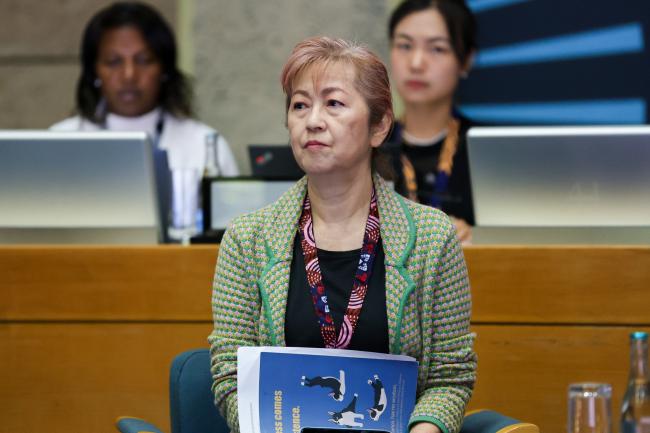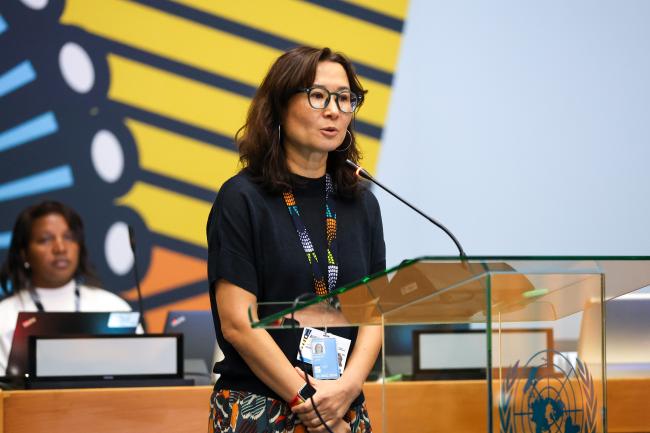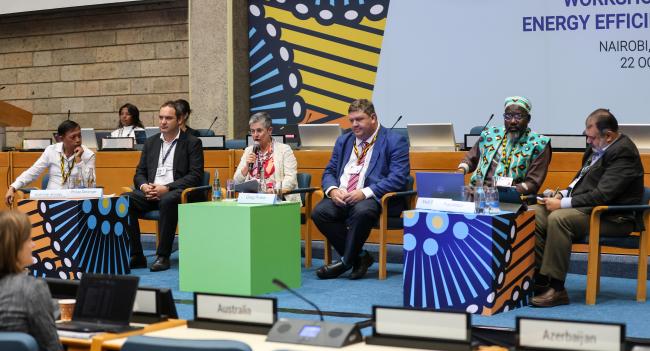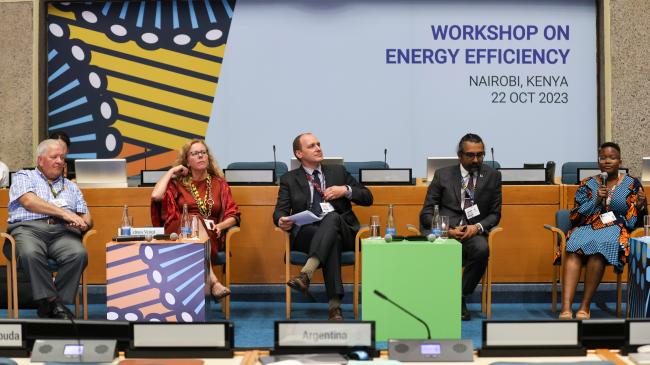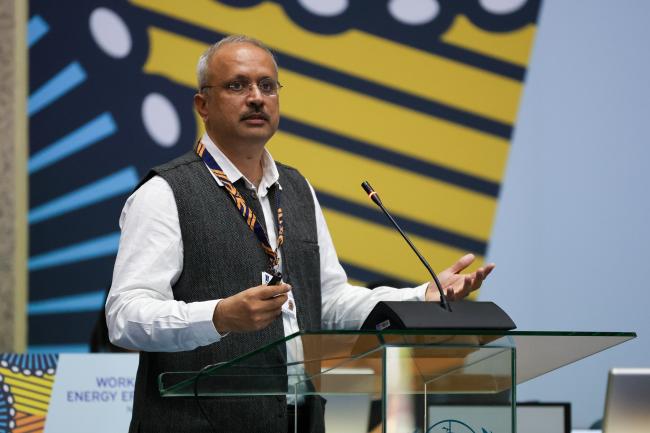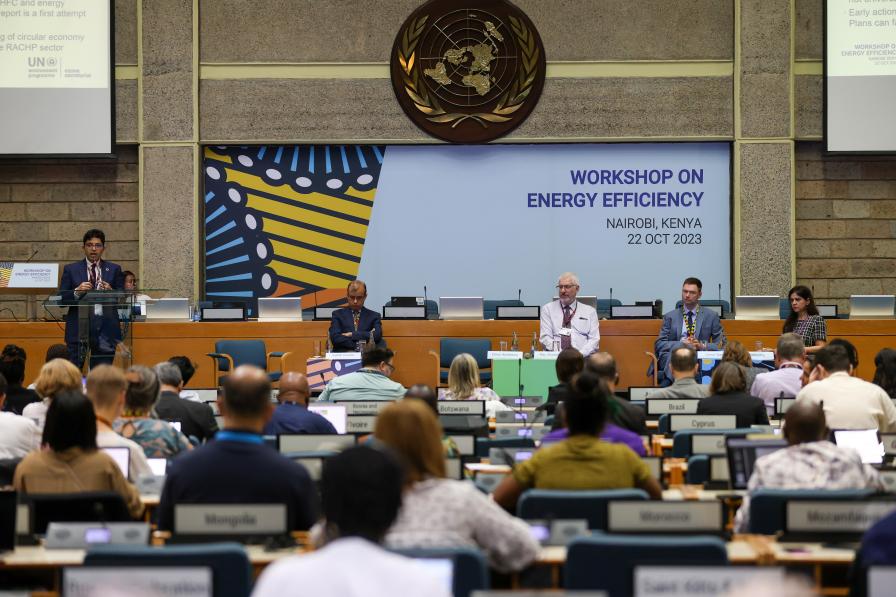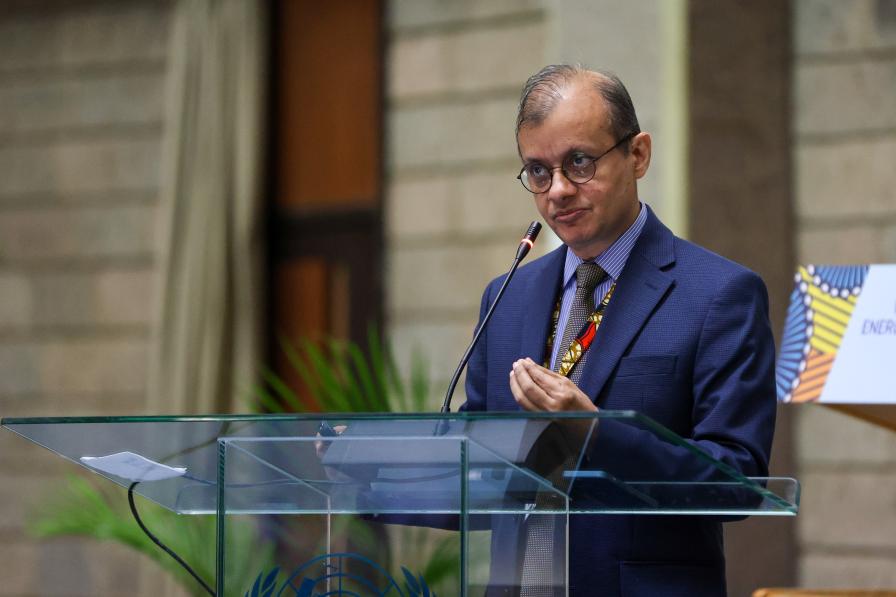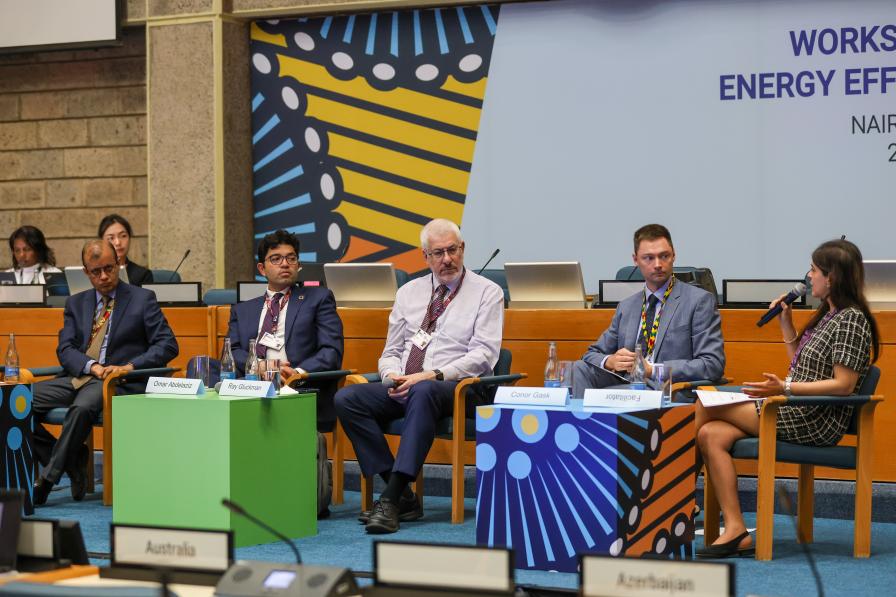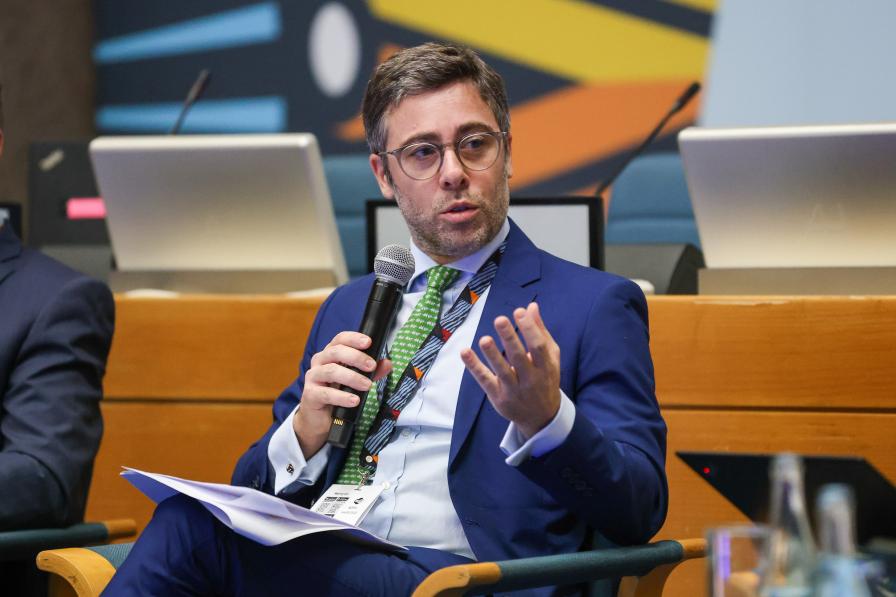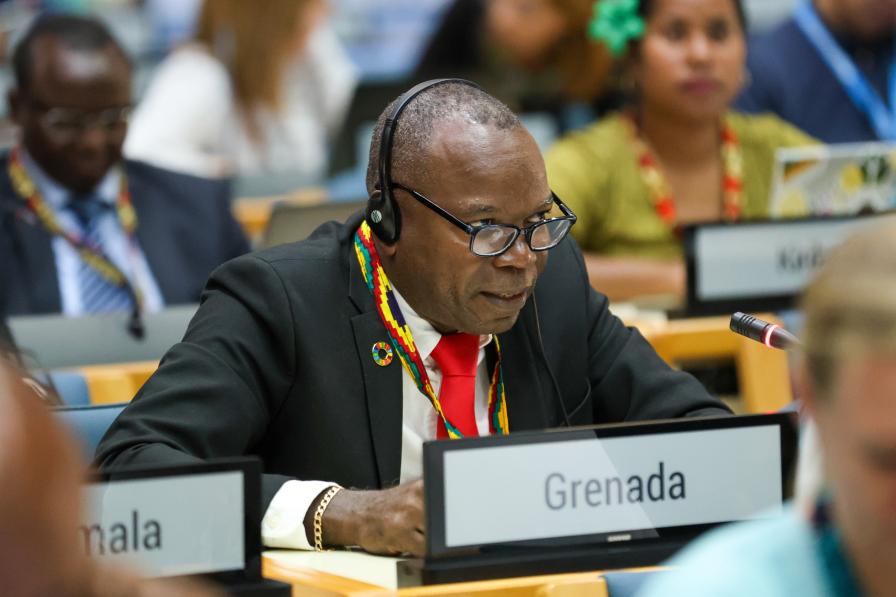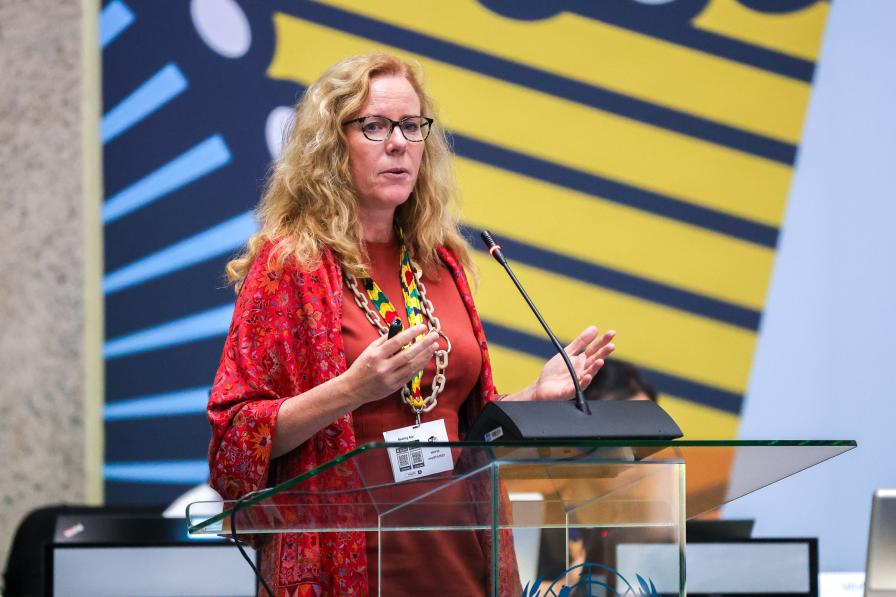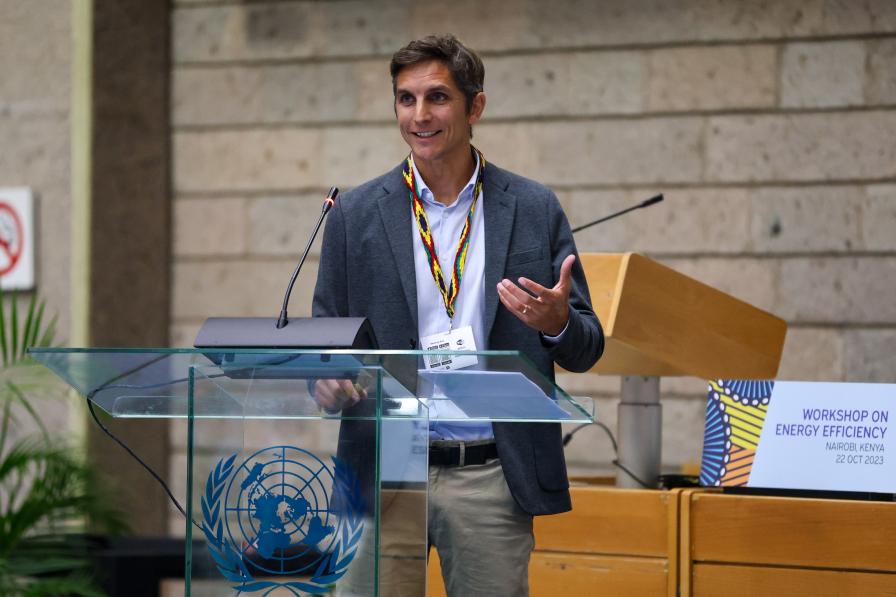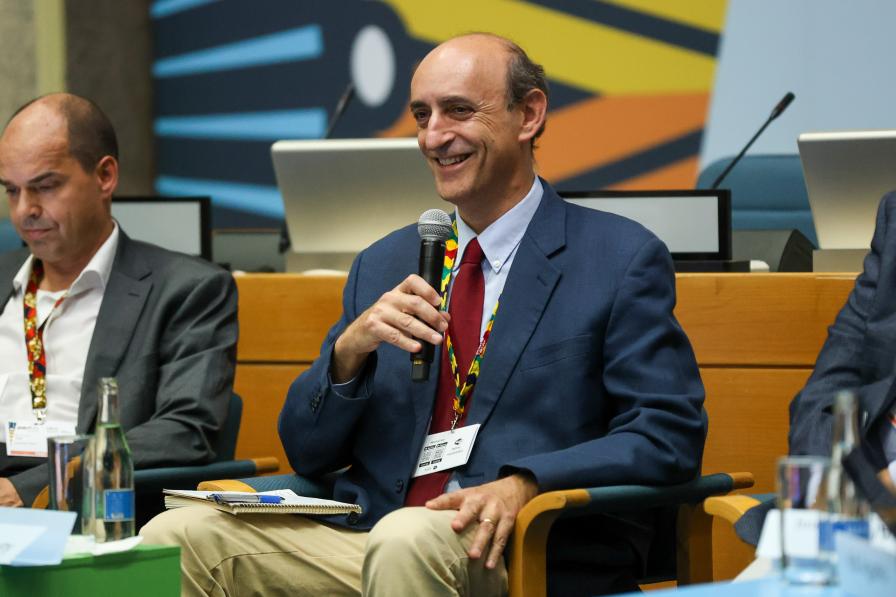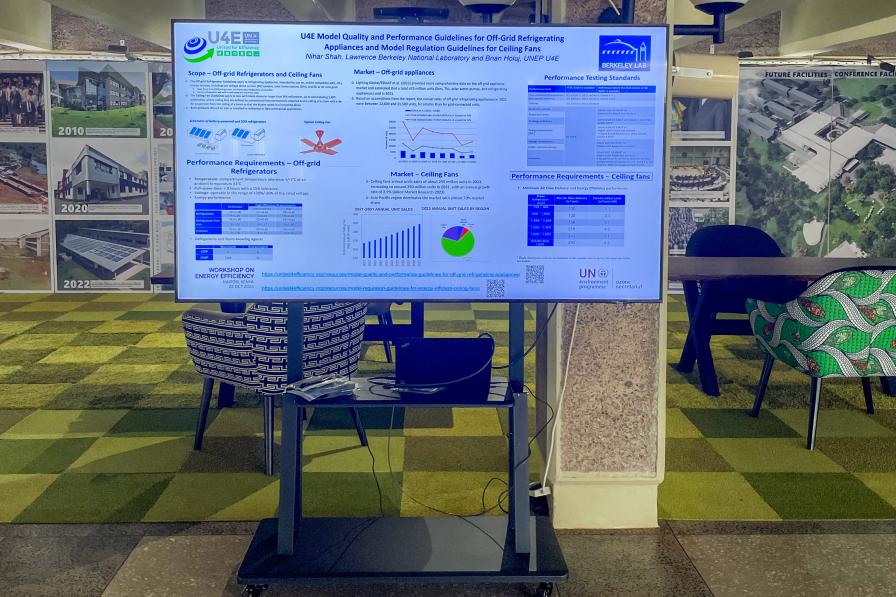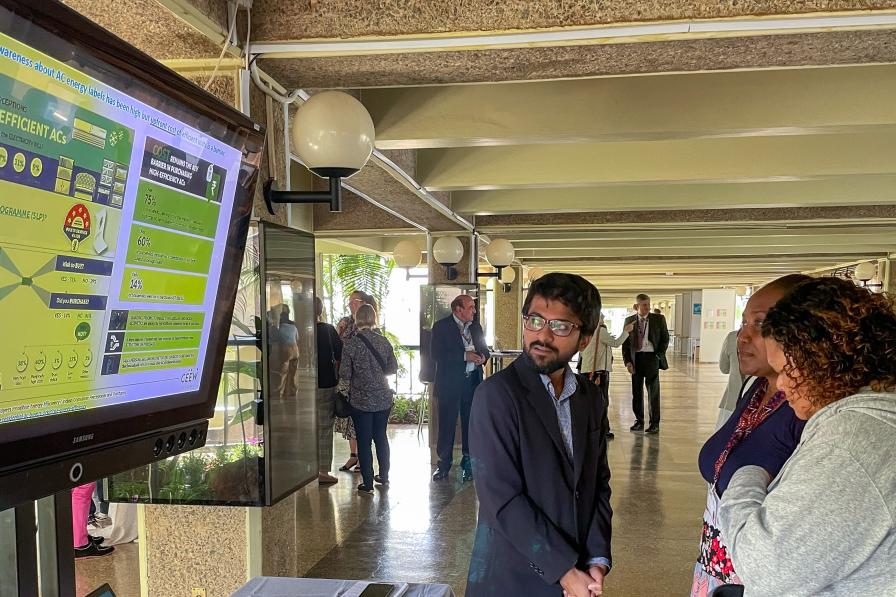In 2023, we have had front-row seats to the hottest average global temperatures since records began, with communities around the world facing unprecedented challenges. This is driving up the demand for heating and cooling technologies. Over the last decade, there has been a significant uptake of refrigeration, air conditioning and heat pump (RACHP) technologies.
Want to dig deeper into today's talks? Read the full Earth Negotiations Bulletin daily report.
This is where the Montreal Protocol on Substances that Deplete the Ozone Layer dovetails with its counterpart, the UN Framework Convention on Climate Change. The Montreal Protocol is widely seen as the most successful multilateral environmental agreement in operation today. But for years, its success came at a cost to the Earth’s climate. Some of the alternatives for ozone-depleting substances were found to have high global-warming potential, particularly those used in the energy sector. To address this, the universal membership of the Montreal Protocol adopted the Kigali Amendment, which aims to reduce the production and consumption of hydrofluorocarbons (HFCs), which contribute to global warming.
It is with this in mind that delegates to the thirty-fourth Meeting of the Parties (MOP 34) to the Montreal Protocol on Substances that Deplete the Ozone Layer requested the Secretariat to organize a pre-meeting workshop on energy efficiency to share best practices, and assess how best to operationalize energy-efficient technologies, which have clear co-benefits for climate change mitigation. Booths, videos, and posters outside the conference rooms illustrated case studies and lessons learnt from different parts of the globe.
Opening the workshop on Sunday, Megumi Seki, Executive Secretary, Ozone Secretariat, underscored the importance of energy efficient technologies in implementing the Kigali Amendment. Delegates attending met in five sessions, engaging in panel discussions on a variety of topics.
Landscape of energy efficiency in the refrigeration, air-conditioning and heat-pump sector
Facilitator Shikha Bhasin, UN Environment Programme (UNEP) Cool Coalition, pointed towards impacts on the climate from cooling measures. In an engaging discussion, panelists addressed, among others:
- best practices in energy-efficiency policy implementation;
- the role of innovation and optimization in halving electricity consumption;
- the challenges and barriers in the RACHP sector; and
- the ‘daunting challenge’ of cooling in India given the large and growing population, tropical and rising temperatures, growing aspirations with housing for all, and rising demand for food cooling.
Making energy-efficient equipment and low- and zero- global-warming-potential (GWP) alternatives more available
Facilitator Ayman Eltalouny, UNEP, underlined the demand to expand the cooling sector globally with all types of applications and sizes. During this session, discussions revolved around two main issues: manufacturing and servicing. On manufacturing, panelists addressed a wide range of considerations, including adopting energy-efficient technologies in the Refrigeration and Air Conditioning (RAC) manufacturing sector; options to address market-acceptance challenges in China; and CO2 emissions from cooling equipment in countries with higher-than-average temperatures.
On servicing, they spoke about: better baselining, measurement and verification, also towards accessing carbon markets; a greater inclusion of the informal sector and of women, both as technicians and end users; how addressing easy-to-fix faults in RACHP equipment can lead to considerable efficiency gains; and how maintenance equipment and toolkits need to be accessible and affordable.
Policy options for enhancing the adoption and uptake of energy efficient equipment with low- and zero-GWP refrigerants
This panel discussion addressed policy options put forward by industry actors. Delegations heard about the need for regional harmonization as a tool to innovate and lower prices of energy-efficient technology. They also learned about, among others: efforts to implement financial incentive schemes for “climate friendly” products in developing countries; air conditioning “buyers clubs” whose intention is to lower prices and increase the environmental performance; and the energy-as-a-service business model in Denmark, which allows supermarkets to lease refrigeration facilities and outsource their maintenance.
Enabling policies for an integrated approach
During this session, delegates considered various policies that can further an integrated approach to facilitate the transition to energy efficiency. The panel drew attention to, among others, National Cooling Action Plans (NCAPs) which integrate ozone layer protection, climate change and energy policies. They also spoke about how integrated urban design can both reduce the cooling load and increase heat resilience, and shared the challenges in accessing and deploying finance for energy efficiency measures.
Closure of the Workshop
During the closing session, Facilitator Patricia Kameri-Mbote, Director, UNEP Law Division, invited panelists to share their closing remarks. They addressed challenges and barriers in promoting energy efficiency, especially for small- and medium-sized enterprises; and pointed to barriers for Article 5 countries, including that they are at the receiving end of inefficient technologies, which compete with high energy-efficient products. They also considered: the cost of alternatives, especially for high-ambient-temperature countries; policies promoting energy efficiency, including building codes and eco-design; and the importance of inter-sectoral coordination.
To receive free coverage of global environmental events delivered to your inbox, subscribe to the ENB Update newsletter.
All ENB photos are free to use with attribution. For the 35th Meeting of the Parties to the Montreal Protocol on Substances that Deplete the Ozone Layer (MOP35), please use: Photo by IISD/ENB | Mike Muzurakis.

